Water Softener Systems
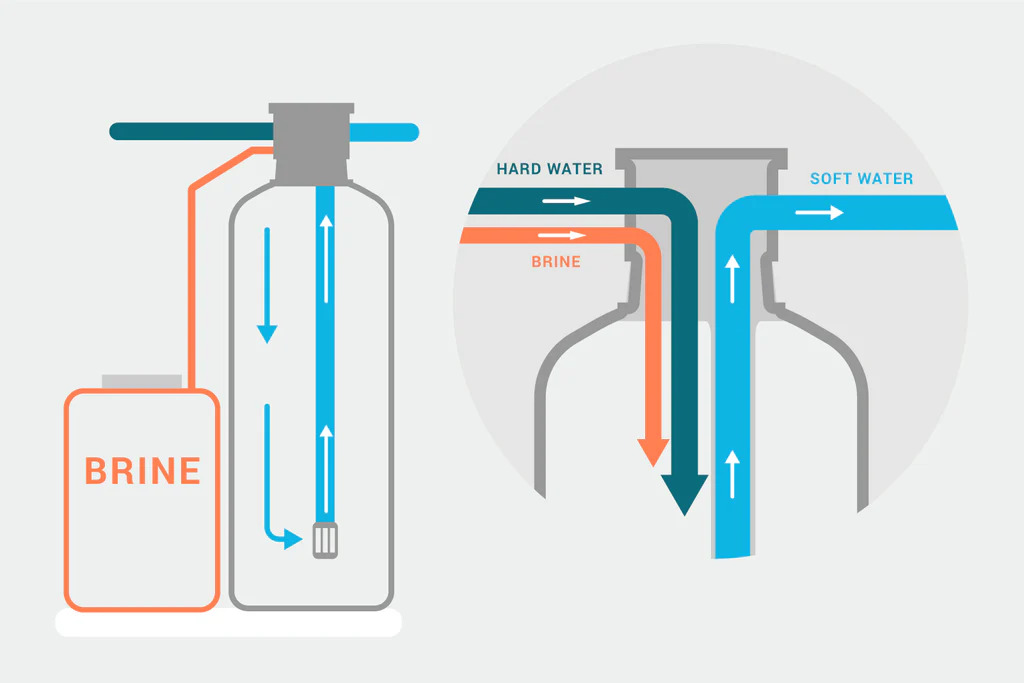
Water Softener Systems
How they work, and the difference they can make.
Being in the water industry since 1963, we often get asked questions when it comes to water softener systems. Here are just a few examples we’ve encountered over the years. We’re hopeful that if we share this information, we may answer some that you’ve thought about as well.
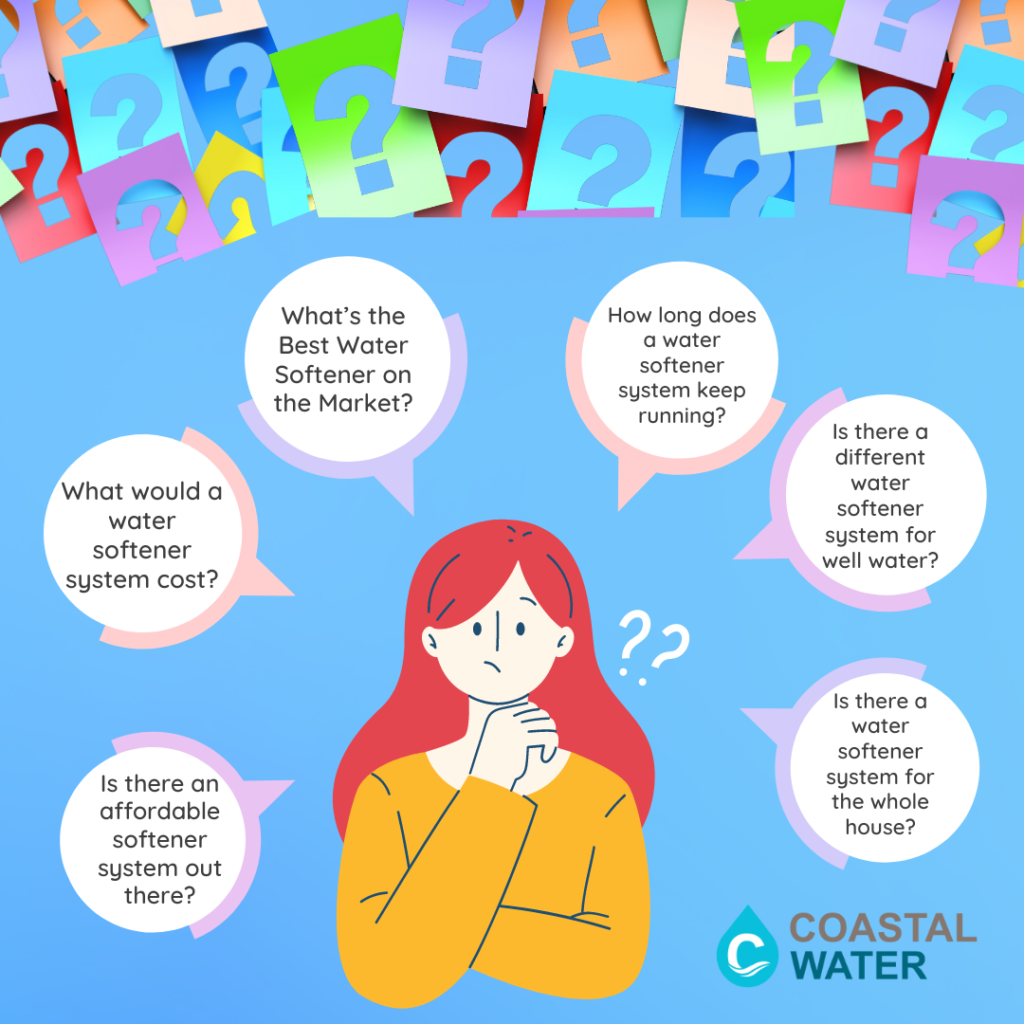
- What is the best water softener system on the market?
- What would a water softener system cost?
- Is there an affordable water softener system out there?
- Is there a different water softener system for well water?
- Is there a water softener system for a whole house?
- How long does a water softener system keep running?
These are all great questions, especially the ones regarding cost, effectiveness and life expectancy. One that doesn’t get asked enough, however, is how much will a good water softener system save?
But first, we should probably ask: How does a water softener system work?
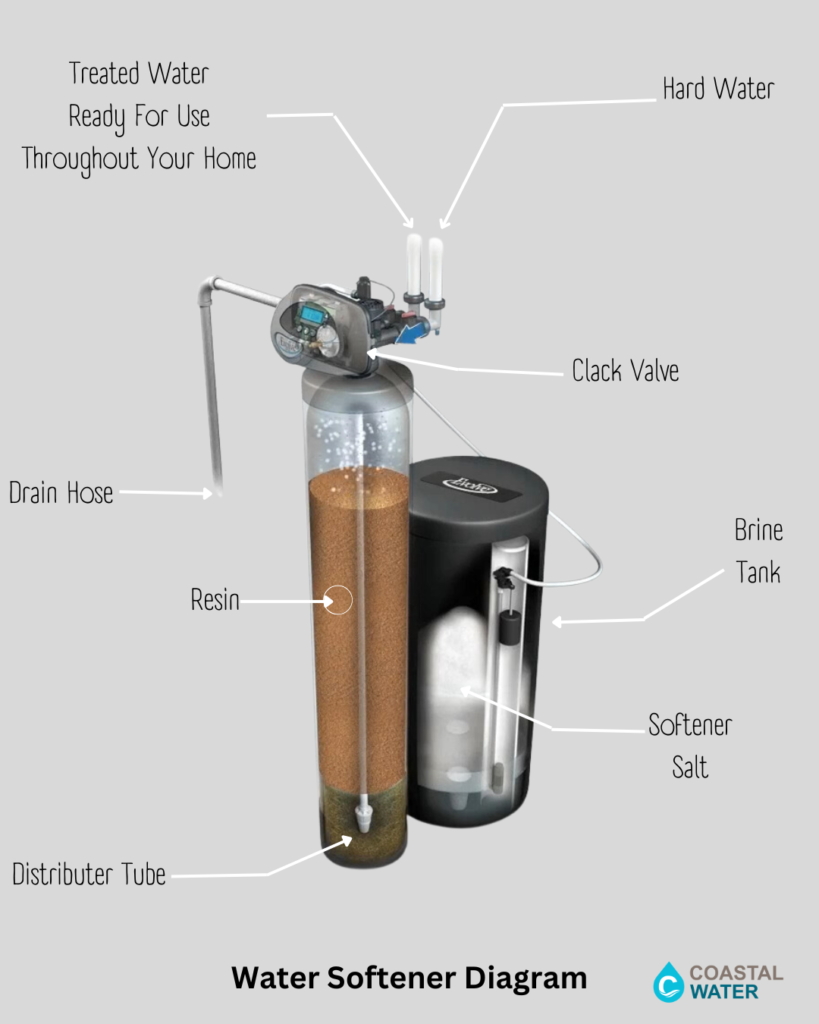
Water Softener System Components & How They Operate
Water softener system explained.
The water softener diagram above shows the upright service position of a system.
As raw water enters into the tank, it travels from the top down through the resin media. This is where hardness minerals like calcium and magnesium are removed from the water. The treated water then flows to the bottom of the tank to enter the distributor tube. From there it exits the system to travel throughout your home for use.
Once the system no longer has the capacity remaining to treat the water needed for the day, it will initiate its regeneration sequence at its scheduled time. The Clack Valve is the programmable head at the top of the system. It calculates usage when the next cycle is needed. This makes it more accurate and efficient both in energy and salt usage. Regeneration begins with the brine tank cycle.
Softener Regeneration
Water enters the system by flowing through the resin. Having softened the water, it travels to the water softener system tank. The water will remain here, dissolving the salts to create a salty solution called brine to use later in the regeneration process. Filling the brine tank with soft water plays an important role. It reduces the need to clean the brine tank.
It then goes through a cycle called backwash. Raw water enters the system by traveling through the distribution tubing. It then lifts the resin while agitating it to shake off undesirable particles. Doing this allows them to flow out to the water softener drain hose. This cleans unwanted sediment and debris that’s been caught inside.
Once the water has had time to dissolve the necessary amount of salt in the brine tank, the solution is then drawn back into the system. It then performs one final rinse cycle to flush any remaining salt from the unit. Once this cycle is over, it resumes providing quality soft water to your home.
How to know if you need a softener system?
We never recommend making a water softener purchase without testing your water to know its needs first. As we mentioned earlier, technology of today is programmable and can cater to your specific needs. This makes water softener systems more efficient and cost-effective. That being said, it’s always best to get a water analysis first to determine the characteristics of your water. Then discuss what goals you may have in mind for you, your family, and your home or office.
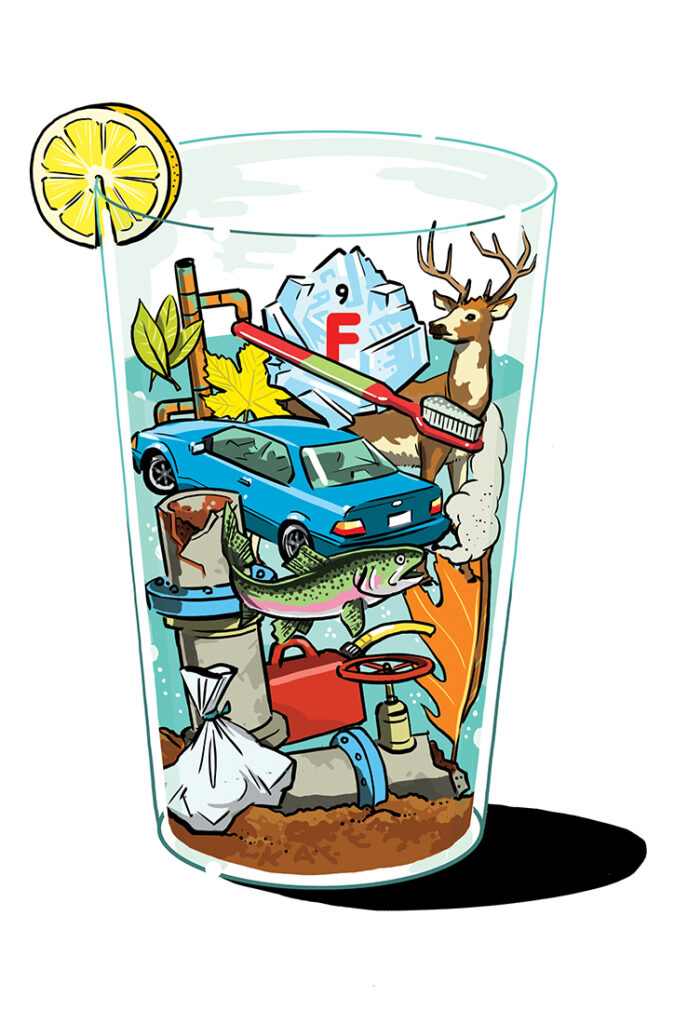
Depending on the diagnosis, if your water is considered to be hard (3 grains per gallon or more is considered to be hard water), then we can start breaking down what a softener system can actually save you when it comes to money, time, and hassle.
Because water travels throughout your home, it can affect all appliances that use it (dishwasher, refrigerator with ice maker and water dispenser, washing machine, and hot water heater to name a few examples).
Hard water and other impurities can keep appliances from living up to their full potential when it comes to running efficiently and also their life expectancy.
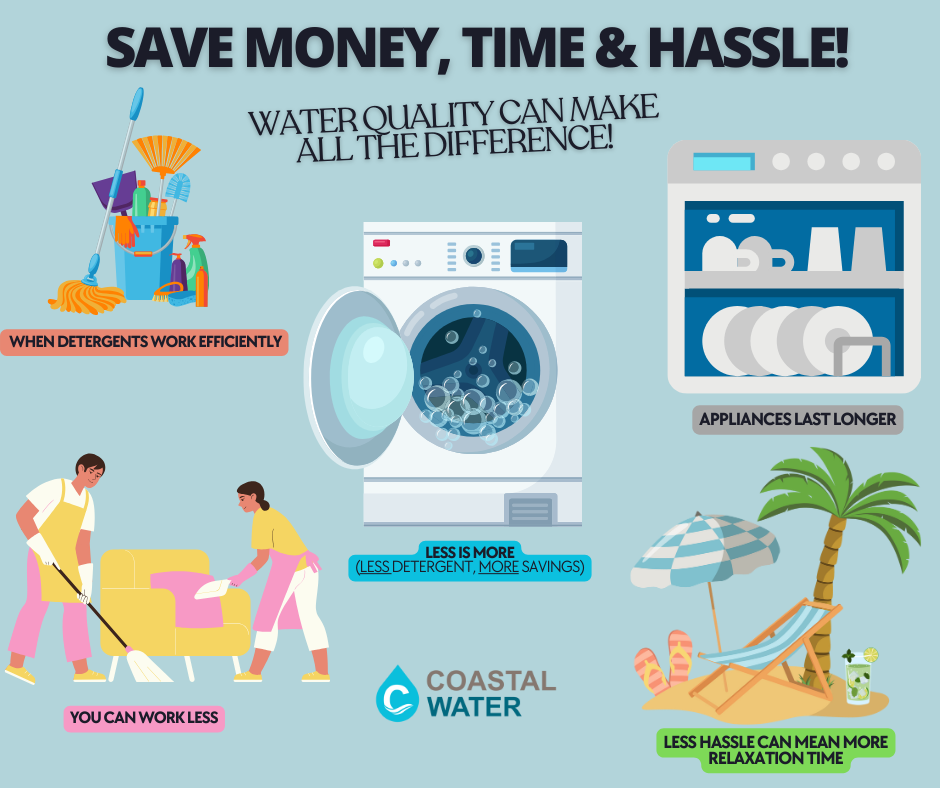
Softener Benefits: Cleaning and Hair
Other things to be considered would be the additional cost of cleaning agents, and excessive time and energy scrubbing to remove undissolved sediment that hard water causes to build up in your faucets, showerheads, sinks and more. Because hard water keeps cleaning agents and detergents from working the way they’re supposed to, it can cause you to use more (sometimes up to twice as much) of the product than would be necessary with soft water.
Skin and hair care can also be affected. Hard water can cause dryness, creating itchy and even flaking skin on the body and scalp area. Hair can also become brittle and harsh and dyed hair can experience discoloration. It can also be hard on clothing and laundry. Because of the potential savings when it comes to a water softener system vs hard water, it’s one of the only appliances that offers a Return On Investment (ROI).
After seeing so many benefits, your next question might be:
Where can I find a company that offers water softener systems near me?
We’re glad you asked.
Companies, like Coastal Water, are driven to be the best when it comes to our sales and service. Steps such as continuing education opportunities for our team throughout the year ensures we’re current with all the latest. Partnering with groups like the Easter Water Quality Association (EWQA) provides wonderful resources and has allowed us to build long-lasting relationships with industry experts in water quality. This makes us more knowledgeable and better at what we do.

Now, let’s tackle the next question that is on everyone’s mind when it comes to removing hardness and other contaminants from your home or office space’s water.
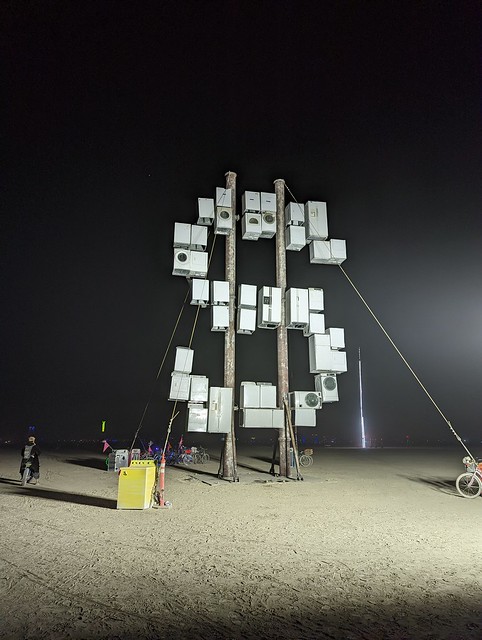
What’s the average cost of a water softener system?
Because we offer in-home testing and consultation free, this first step is quite effortless and just requires about forty minutes or less of your time to complete. If needed, we can then provide our recommendations, again, only if needed, at that time. If your water can benefit from a softener system, we can offer immediate pricing and discuss with you a plan of action that will best fit based on your water’s characteristics. Our quote also includes tax and the water softener system installation to take any additional guesswork out of it for you.
So, before you buy a water softener system or begin looking into a cheap water softener system because you like the price, we encourage you to contact our office. We can answer additional questions you may have when it comes to what would be the best salt softener system, how to maintain a water softener system, or what the best water softener system is for well water and other questions relating to understanding what you want to achieve with one.
Overall Summary and the Next Step
Now that you have a better understanding of how a system works, what we need to do to identify any unwanted contaminants, some ideas on what to look for when finding a reputable company, cost and ultimately figuring out how much you can save, we can then decide the next step…placing the call to schedule your FREE, in-home water analysis and consultation with Coastal Water.
As an Evolve Dealer, and considered an industry leader, we are always continuing our education with the AO Smith product line, attending the Eastern Water Quality Association conferences throughout the year and working with other divisions of our team to make sure we’re the best at what we do to provide you, your family, customers and guests the very best when it comes to our products and service.
If you’d like to learn more, A.O. Smith has a great resource and of course, you can always click Get a Free Quote below to contact us directly.